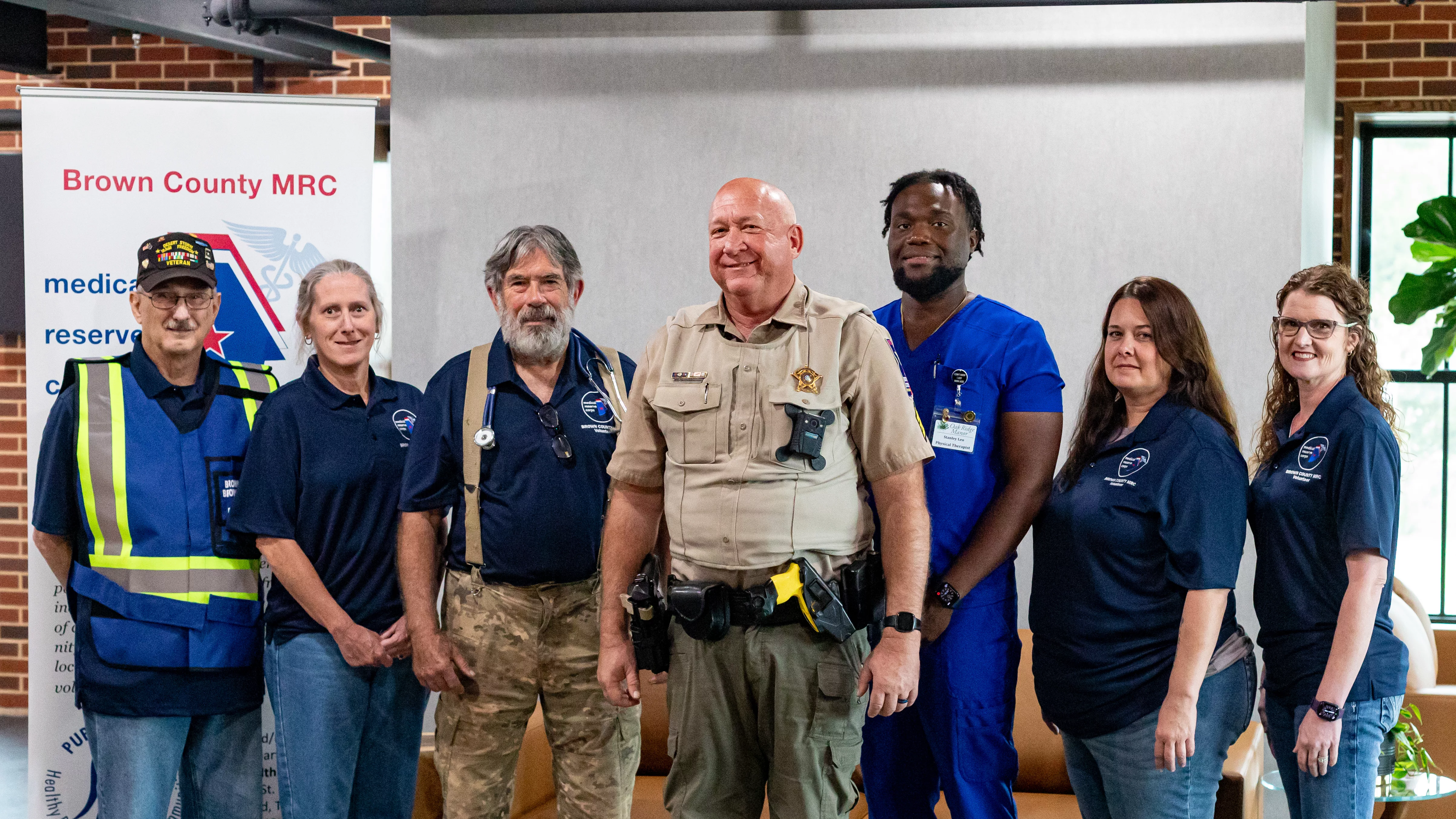
The Brownwood/Brown County Health Department’s Medical Reserve Corps is celebrating its sixth anniversary during the month of September, and is actively seeking new volunteers to join.
“A lot of people don’t even know the MRC exists,” Medical Reserve Corps Coordinator Ashley Belez said. “A lot of people think if they’re not medical they can’t be a part of it, but we have non-medical and medical volunteers. We just want to get the word out that we’re turning six, we’re here, we’re actively recruiting.”
Cliff Karnes, Public Health Preparedness Coordinator, said, “The MRC is a national program through Health and Human Services at the federal level. It’s through the Administration for Strategic Preparedness and Response, which is a sub-agency of HHS. It was created after 9/11 as a response to the terrorist attack and the anthrax mail incidents. There was a recognized need for an organized response of volunteers because after those events it proved problematic. They created the MRC which is medically driven by not required. Our core volunteers, we need medically trained individuals but they don’t have to medically trained. We’ll train them in what they need to respond in the vain of public health. That’s where MRC started.”
For those interested in volunteering, Belez said, “You have to be 16 years or older and you have to pass a background check. You can go on the city’s website under the health department and then public health preparedness and then medical reserve. Our application is on there, they can click on it, they can fill it out, or send it to me, our email address is attached. They can also go on our Facebook page and message us there and we can send them an application or meet with them personally one on one.”
Karnes added, “There are national standards for core competency for MRC volunteers so we base our training for volunteers on those core competencies. Then we let them select what level of engagement they want in the unit. They can have regular involvement and the training goes up a little bit, but if they want to be a volunteer that doesn’t have a lot of time to engage in community education and service activities, but still want to help with the emergency response, we provide them the training we need to help with that. They can decline the request for engagement throughout the year, but we can still keep them in our back pocket.”
Prior to the COVID outbreak of 2020, the MRC had about 60 volunteers, but that number has dwindled to around 25.
“The past two or three years my assistant Bao Sharp and I have been trying to build up recruiting and get people involved,” Belez said. “We do recruitment activities, we went out to Howard Payne nursing and have been trying to recruit some nursing students We try and do whatever we can to get the community involved. A lot of people see volunteers and think they have to give a lot of time, but we don’t ask a lot of our volunteers. We have a meeting bi-monthly just to get them together and networking. We want them to becoming a family type unit. If we have an event we call upon them and if they say no they can’t be there, it’s understandable. People have other things they have to do.”
Regarding the origin of the Medical Reserve Corps in Brownwood, Karnes said, “We created an MRC in our jurisdiction in 2018 as a result of some state influences wanting an MRC created. We’ve always relied on volunteers and recruited volunteers. I’ve been in my position about 12 years and when I started we just recruited emergency volunteers in collaboration with emergency management. We used that volunteer base and as there was some provocation from the state, we pursued recognition of an MRC for our jurisdiction, which was a lengthy process that took about a year to go through the steps. Then to maintain the unit you have to routinely report events, trainings, things of that nature.
Karnes added, “We have three mission areas we focus on to keep the volunteers engaged and also provide a service for the community to build relationships in non-emergency times. The first is emergency response, so we train our volunteers in assisting with emergency response situations. The second is community education, which are things like Stop the Bleed and CPR training and other education like personal preparedness and anything within the vain of public health in general. The third is community service where we set up a first aid station or cooling station at community events like Cinco de Mayo and the Education Foundation event this weekend.”

